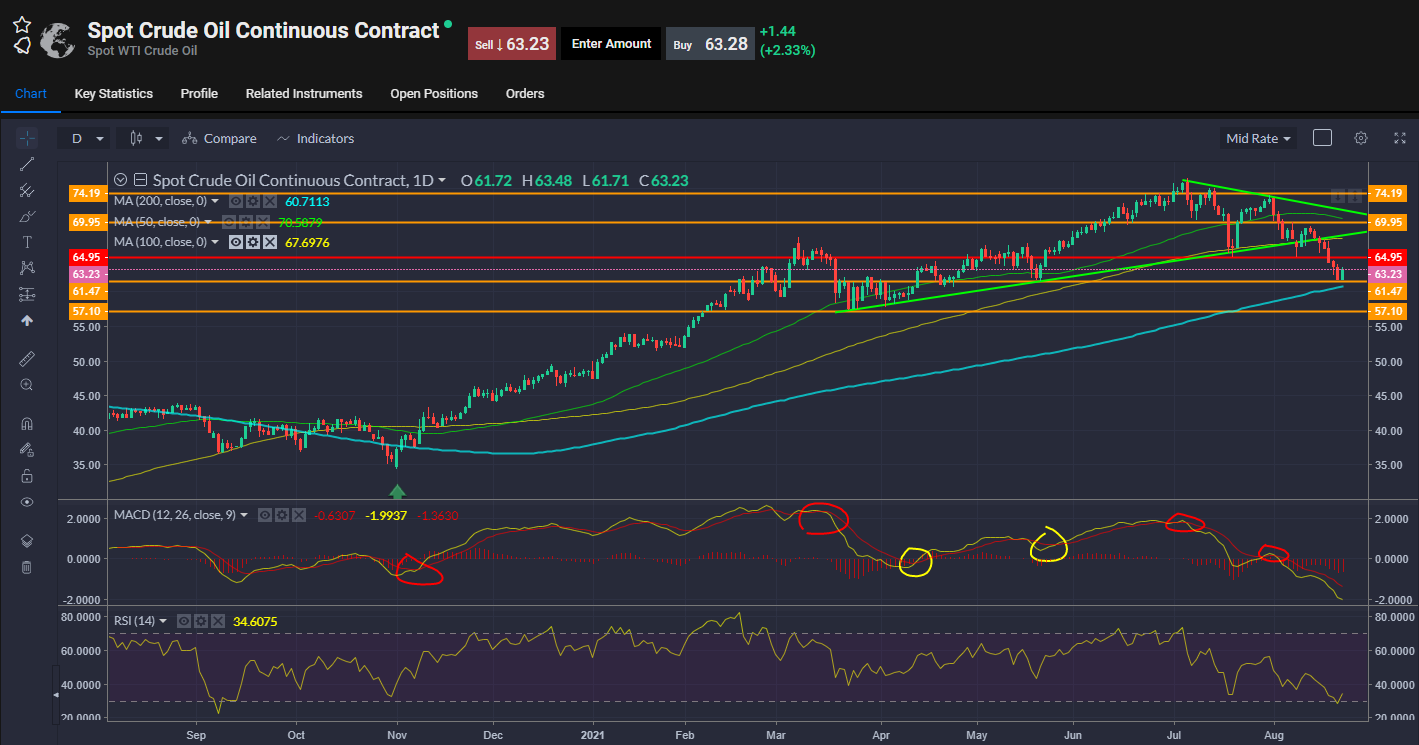European stock markets made broad gains in early trade on Monday, trying to recover some of last week’s losses, which saw the FTSE slump to its worst week since Feb. The Euro Stoxx 50 advanced 1% after a solid session in Asia, though data showed Japanese factory activity growth slowed in August. Sector wise, utilities and tech and real estate are lower in London, with the rest higher led by energy and consumer cyclicals with risk on for the moment.
Flash PMIs for Europe display some further loss of momentum but still growth is solid. The dollar is a tad softer as risk finds bid, though EUR/USD eased back from a 5-day high as those PMIs were a little softer than expected. The surveys indicate good momentum, and inflation pressures could be easing just a touch but there are warning signs that it’s only going to persist. Input cost and selling price inflation rates in August were the third-highest recorded over the past 20 years, exceeded only by the increases seen in June and July. However, the report found ‘unprecedented’ supply chain delays which continue to lengthen and future sentiment cooled for a second month to the lowest since March. Job creation is strong but so too is wage growth. Strong growth led by demand growth combined with severe supply constraints will only make higher inflation more persistent.
Meanwhile, Bitcoin rose above $50k again, hitting a more than 3-month high as the rebound shows no signs of cooling. Could be big area of resistance here as it would close the gap back above the May plunge. Pullback could look for support around $47k in the near term. The move comes as PayPal (NASDAQ:PYPL) has announced it will allow people to buy, sell and hold cryptos in the UK. Meanwhile, the news last week that Coinbase (NASDAQ:COIN) will buy $500m in cryptos to put on its balance sheet and put 10% of quarterly profits into a crypto portfolio has lent support to sentiment.
Apple (NASDAQ:AAPL) delays return to office mandate, problems in China’s ports and US hospitalisations on the up...Delta messing with your autumn plans yet? And could it yet stop the Fed from announcing its taper? A single Covid case set the RBNZ off course, and with cases rising sharply again in the US - the 7-day rolling average is now more than twice what it was at the time of the last FOMC meeting - and a slowdown in the data, it is not unfathomable that despite the Fed speak we have heard these last two weeks, and despite the hawkish meeting minutes, that the FOMC will delay tapering of its $120bn-a-month bond buying programme for a wee bit longer.
Stagflation readings? UK retail sales fell 2.5% in July. In the US, the decline was 1.1%. One-off factors could be to blame for sure, but the direction is instructive: the spread of the virus is happening, and people are not so confident as they were back in April. Last week the Philly Fed manufacturing index fell for a fourth straight month, hitting its weakest since peak-Covid December, whilst the index for prices received was at the highest since May 1974. Consumer inflation expectations keep on going up and they are wobbling – the UoM consumer sentiment index fell to a pandemic-era low as it suffered one of its largest drops on record in August. The final reading of that data series comes on Friday, alongside the key PCE inflation reading – the Fed’s preferred gauge of inflation.
Last week saw global stocks fall amid signs of slowing growth, China’s tech crackdown – which saw the Hang Seng officially enter a bear market on Friday – and a sudden lockdown in places like New Zealand and Australia. This week provides more grist for the mill: flash PMIs for the EZ, UK and US today, preliminary US GDP numbers for Q2 and the PCE inflation number. The two things driving the market in the last few weeks has been the changing economic data and chatter about a Fed taper. So, against all this hard data and rising Covid cases we get the old Jackson Hole central bank convention. For all the world it looks like the Fed ought to be teeing up a taper – but the Delta variant could yet upend the Fed’s plans for the Fall.
Corporate raiders: Sainsbury's (LON:SBRY) shares leapt over 12% to the top of the FTSE 100 after reports it is a target of Apollo, which missed out on the takeover of Asda last year. SBRY shares have already risen 40% this year amid heavy speculation it would be the next in the private equity firing line. Sainsbury’s is undeniably a good target for private equity with a considerable store estate, with the company having more than $10bn in property assets – more than its current market cap by decent margin. The Argos tie-up is another long-term growth lever and provides further scale, while profits are on the up again in the wake of the pandemic, and net debt has come down. It’s hard to beat those reliable cash flows – even without a big sale & leaseback plan the supermarkets are generating the kind of yield that is hard to get elsewhere. Meanwhile Morrisons (LON:MRW) shares trade steady at 291p, around 6p above the latest CD&R offer as investors bet there is more to come in that particular bidding war.
Chart: Oil bounces off 3-month low as risk catches bid this morning, but sentiment remains bearish.

